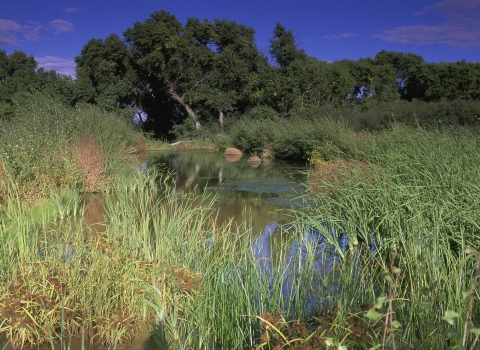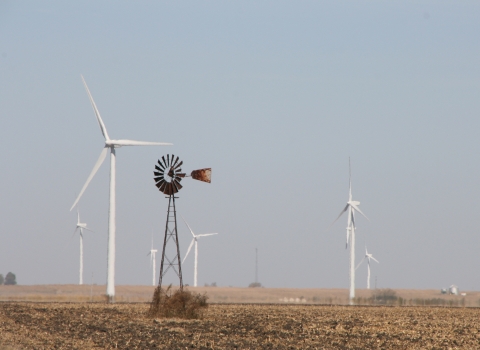The U.S. Fish and Wildlife Service has announced a proposal to acquire up to 32,459 acres of additional fish and wildlife habitats for the expansion of Tensas River National Wildlife Refuge in Madison and Tensas Parishes, Louisiana. According to the Service's Southeast Regional Director, Sam D. Hamilton, the proposed expansion would benefit a diverse variety of fish and wildlife and enhance the recovery efforts for the Louisiana black bear, a federally listed threatened species.
The Service is seeking public comments on a draft environmental assessment and land protection plan for the proposed expansion. The assessment addresses the biological, environmental, and socioeconomic effects of expanding the refuge. It also evaluates four alternatives for the protection of the project lands and the potential environmental impacts.
Copies of the draft environmental assessment and land protection plan are being made available for public review and comment through February 15, 1998. Requests for copies of the proposal and for further information on the project should be addressed to Mr. Charles Danner, U.S. Fish and Wildlife Service, 1875 Century Boulevard, Atlanta, Georgia 30345 (1-800-419-9582) or Mr. George Chandler, Refuge Manager, Tensas River National Wildlife Refuge, Route 2 Box 295, Tallulah, Louisiana 71282.
The U.S. Fish and Wildlife Service is the principal Federal agency responsible for conserving, protecting, and enhancing fish and wildlife and their habitats for the continuing benefit of the American people. The Service manages the 93-million-acre National Wildlife Refuge System comprising more than 500 national wildlife refuges, thousands of small wetlands, and other special management areas. It also operates 66 national fish hatcheries and 78 ecological services field stations. The agency enforces Federal wildlife laws, administers the Endangered Species Act, manages migratory bird populations, restores nationally significant fisheries, conserves and restores wildlife habitat such as wetlands, and helps foreign governments with their conservation efforts. It also oversees the Federal Aid program that distributes hundreds of millions of dollars in excise taxes on fishing and hunting equipment to state wildlife agencies.
X X X
r99-003

